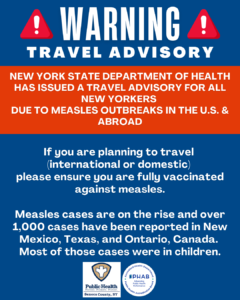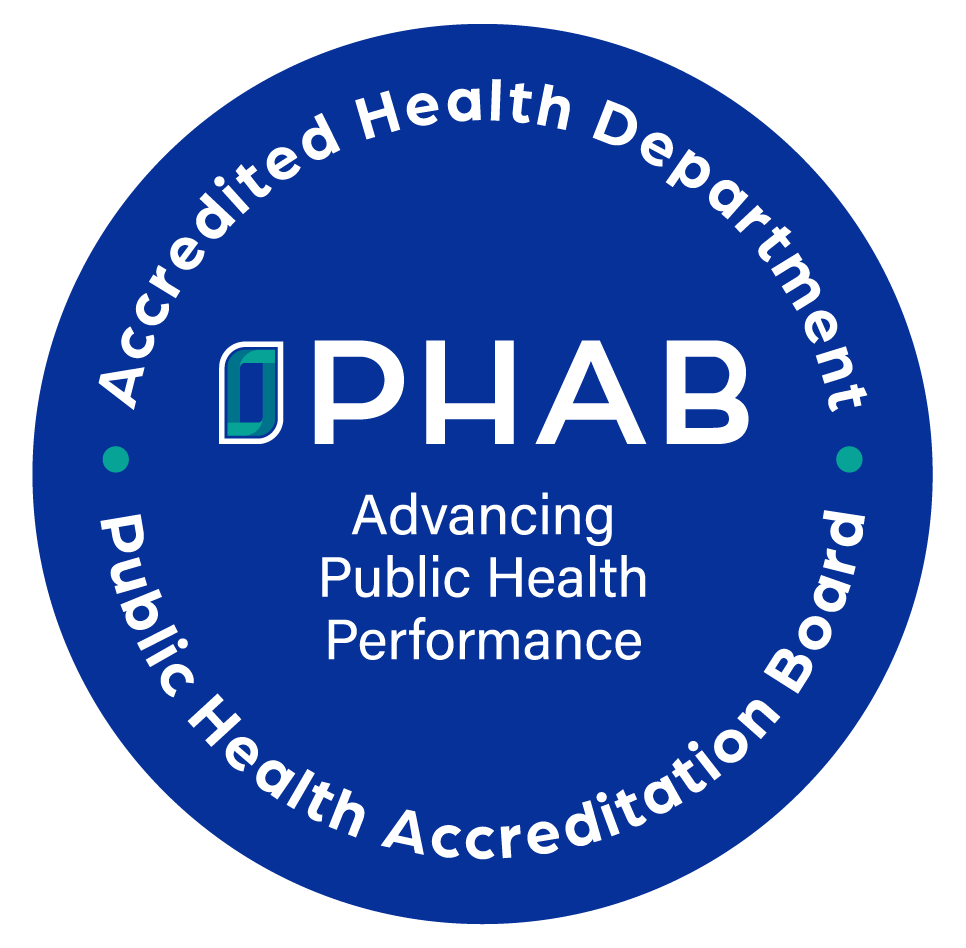Helpful Measles Information
Measles is a highly contagious respiratory illness that spreads easily. When a person sick with measles coughs or sneezes, the virus gets into the air, where it can stay for 2 hours. Anyone who is not immune can get measles if they are in that area. Furthermore, 9 out of 10 susceptible individuals will get measles if exposed.
Measles cases are on the rise across the United States. This is due to several factors: the highly contagious nature of the virus, the decreased measles-mumps-rubella (MMR) vaccination rates in the United States, and the increased measles activity globally. Added together, these factors are a recipe for exponential spread in a non-immune or partially immune population.
Dr. James McDonald, New York State Health Commissioner, has raised concern regarding the spread of measles, saying, “Measles can be very serious. It’s much more than just a rash as complications can include pneumonia and inflammation of the brain and often results in hospitalization.” Dr. McDonald has issued a public service announcement on the rise in measles cases, as follows:
For the latest information on measles cases and outbreaks in the United States, visit the CDC (Centers for Disease Control) website: https://www.cdc.gov/measles/data-research/index.html.
Is Measles Serious?
Measles can be dangerous, especially for babies and young children. Common complications are ear infections and diarrhea. Serious complications include pneumonia and encephalitis (swelling of the brain).
Signs & Symptoms of Measles
Symptoms of measles can appear 7-21 days after exposure. Symptoms can include:
- High fever
- Cough
- Runny nose
- Red watery eyes (conjunctivitis)
- Rash: small red spots that give a splotchy red appearance, often starting at the head and spreading down the body (usually appear 3-5 days after initial symptoms).
Preventing Measles
You are considered immune to measles if you:
- Were born before 1957,
- Have written record of 1 or 2 valid doses of measles-containing vaccine (depending on age), or
- Have a laboratory test showing you are immune.
If you are not sure whether you are immune, talk to your health care provider.
If you are not immune, get vaccinated. Getting the measles vaccine is the best way to prevent measles! Two doses of the MMR (measles, mumps, rubella) vaccine will provide the best protection. Make sure everyone in the family is properly vaccinated or immune.
Vitamin A does not prevent measles. In fact, high doses of vitamin A are very dangerous and can cause nausea, vomiting, liver damage, and confusion, to name a few. Vitamin A should only be given under a doctor’s supervision to individuals diagnosed with measles to reduce the severity of illness and to help prevent complications.
Don't Spread Measles
If you think someone has measles, call before seeking medical care so the office, clinic or emergency room can take steps to prevent other people from being exposed.
Since measles spreads quickly and is contagious even before the rash starts, stay home at the first sign of fever or cough.
Get the Facts
For more information, visit:
- Centers for Disease Control and Prevention: https://www.cdc.gov/measles/about/index.html
- New York State Department of Health: https://www.health.ny.gov/diseases/communicable/measles
- American Academy of Pediatrics printable (Measles and the Vaccine to Prevent It): https://senecacountyhealthny.gov/wp-content/uploads/2025/04/measles-vaccine.pdf
- Seneca County Health Department Immunization Program: https://senecacountyhealthny.gov/public-health/programs-services/immunizations/
- Clinical fact sheet for providers: https://senecacountyhealthny.gov/wp-content/uploads/2025/04/measles-update.pdf








